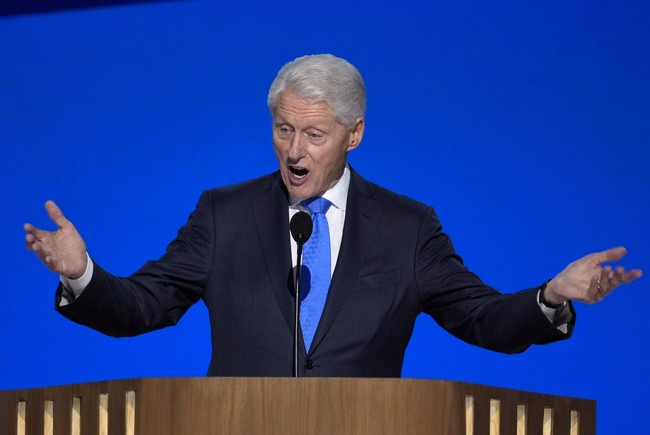Trump's Legal Maneuver: Biden's Pardon in Focus
The legal entanglements surrounding Donald Trump intensify as he attempts to use President Biden's pardon of his son as leverage in his own courtroom battles.
Published December 05, 2024 - 00:12am

Image recovered from vanityfair.com
In an unprecedented twist in the realm of American politics and legal entanglements, Donald Trump's legal team has taken an audacious step by invoking President Joe Biden's pardon of his son, Hunter Biden, as a cornerstone for dismissing Trump's own legal woes. The controversy unfurled on the political stage has garnered attention, not only for the implications it has on Trump's future but also for how it challenges the intricacies of justice and presidential power in the United States.
Donald Trump, the president-elect poised to reclaim the White House in 2024, has been embroiled in a myriad of legal contests. Among these, the most notably publicized is the case involving the hush-money scheme linked to adult film actress Stormy Daniels. This legal case has seen Trump stepping into the courtroom to face charges that have significant historical weight, given that it marks the first time a former U.S. president has been convicted of a felony. Charged earlier this year, Trump was found guilty of falsifying business records—a conviction hanging ominously as he prepares to take office once again.
Trump's attorneys have requested that Judge Juan Merchan in New York throw out the conviction. Their argument? President Biden's recent pardon of his son for what Biden described as a 'selective prosecution' should equally apply to Trump's case, suggesting that Trump's legal battles were similarly fueled by political motives. This strategic legal filing echoes the wider narrative Trump has propagated—that he has been the victim of a prolonged, politically motivated witch hunt.
The pardon in question involved Hunter Biden, whose own entanglements with the law covered issues including tax evasion and lying when purchasing a firearm. President Biden's decision to pardon his son has ignited a political firestorm, drawing criticisms from Republicans who see it as a misuse of presidential power, and skepticism from some Democrats who view it as a risky political move, potentially handing Trump ammunition to delegitimize the judicial process as partisan.
This development comes in light of prior pivotal moments, such as the Supreme Court's ruling in July, which offered a nuanced view on presidential immunity. While acknowledging that a sitting president enjoys certain protections, the Court stopped short of proclaiming total immunity. Trump's legal defense has leaned heavily on this decision to assert that past charges, such as those involving the alleged misuse of classified documents, should be dismissed.
However, Trump's legal fortunes have recently seen a variety of turns. In a Georgia case concerning electoral interference, Fulton County District Attorney's involvement with a team member led Trump's attorneys to call for a dismissal. Furthermore, the federal cases brought forth by special counsel Jack Smith concerning election subversion and mishandling secret documents were significantly impacted by rulings that Trump-appointed judges either delayed or dismissed crucial aspects of these cases.
Against this backdrop, the Biden pardon for his son seems to represent both an opportunity and a challenge for Trump. By drawing parallels between his circumstances and those of Hunter Biden, Trump's legal strategy seeks to question the integrity of the legal processes that have implicated him, aiming to present these as political armament used by his rivals.
Nonetheless, the core of Trump's argument—that there is symmetrical ground between his cases and that of Hunter Biden—raises substantial debate. Critics argue that while both may experience selective leniencies due to their stature and resources, equating the nature and severity of their actions remains tenuous. Trump's publicized legal dramas, including the gross mishandling of classified documents and charges relating to election interference, are viewed on an entirely different scale of legal jeopardy.
The implications of this legal chess game are profound. As public figures with significant influence, both Biden and Trump are cast as active participants in shaping how the justice system interfaces with political privilege. Trump's maneuvers echo a rhetoric of exceptionality, suggesting that he, much like Hunter Biden, has been targeted not for his actions but due to an allegedly biased judicial system.
Ultimately, the convergence of these events paints a complex picture of contemporary U.S. political dynamics, where legal accountability, political influence, and public perception coalesce in unpredictable ways. With Trump's return to the presidency looming, the resolution of these legal battles will undeniably shape the narrative of his leadership and America's perception of justice and favoritism.







